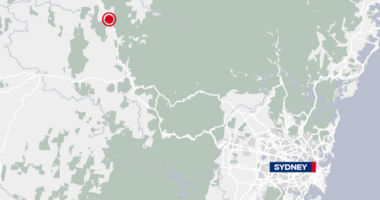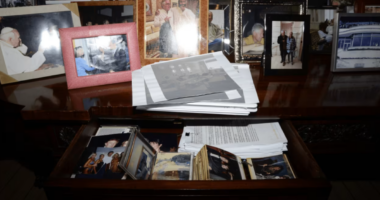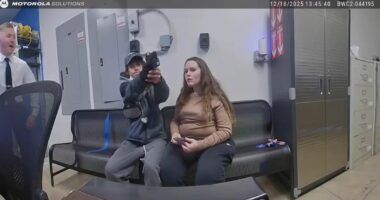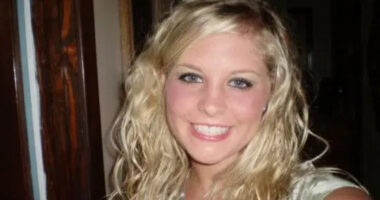Share this @internewscast.com
The grandmother of two young children, whose lives were tragically ended by their own mother and whose remains were discovered in suitcases, is struggling to comprehend the “horrific, cruel, and terrifying” act. She is left questioning why such “innocent children” had to suffer such a fate.
In a poignant victim impact statement, Choon Ja Lee expressed her devastation, saying, “It felt like a pain that pierced through my bones, or as if something was ripping out my heart. I longed to escape the agony, yet I had no one to turn to for comfort.” Her statement was delivered by prosecutor Jong Kim.
These emotional words were shared as Hakyung Lee—previously known as Ji Eun (Jasmine) Lee—stood before the High Court in Auckland. She faced sentencing for the murder of her two children, Minu Jo, 6, and Yuna Jo, 8, a crime committed around June 2018.

After admitting to the killings, concealing the bodies in suitcases, and abandoning them in a South Auckland storage facility before fleeing to South Korea, Lee received a life sentence from Justice Geoffrey Venning.
Throughout the court proceedings, Lee kept her head bowed—mirroring her demeanor during the trial. She is required to serve a minimum of 17 years in prison before she can apply for parole.
Nevertheless, Lee will start her sentence as a special patient under the mental health act, reflecting the complexities of her case.
Deliberate and calculated murder
Justice Venning said while Lee was undoubtedly affected by severe depression, the killing of her children was deliberate and calculated.
It has been over seven years since the two children were killed and she fled to South Korea.
And nearly three years since the bodies of the children were discovered – something that came as a tragic shock to Lee’s mother and brother-in-law.
In the victim impact statement of the grandmother she spoke of “deeply regretting” not taking Lee to a counsellor after returning from a trip to Australia in 2017.
“If I had taken her at that time this tragedy might have been prevented,” Choon Ja Lee said.
She also spoke of being labelled as the “mother of a murderer” by church members.
Sei Wook (Jimmy) Cho, Lee’s brother-in-law, said the impact of Minu and Yuna’s murders has been profound, devastating and he feels ongoing trauma.
He spoke of Lee’s cruel deception.
“We genuinely believed she was moving to start a fresh life away from New Zealand. Instead of a reassuring call…the truth shattered our family.”

Cho said he is a ticking time bomb living in fear and anxiety.
“I carry a heavy agonising guilt…I feel like I failed to look after my niece and nephew.”
Bodies found in suitcases in abandoned storage unit
The bodies of Minu and Yuna were discovered in August 2022 by an unsuspecting couple who won an online auction for an abandoned storage unit.
Lee admitted giving them the anti-depressant medication nortiptyline before putting their bodies in suitcases, leaving them in a storage unit and flying to South Korea on a business class ticket in 2018.
At the trial she claimed she suffered a “descent into living hell” that began with her husband’s cancer diagnosis in 2017.
Her fragile mental health drove her to “descend into madness” and kill her children, the defence argued at trial, and she was therefore not guilty by reason of insanity.
But the Crown argued at the time she killed her children, Lee knew the moral wrongfulness of her actions.
Manukau’s Crown Solicitor Natalie Walker submitted that life imprisonment was warranted in this case with a need for her to spend at least 21-23 years in jail before parole eligibility.
Walker said there’s no evidence, apart from Lee’s self reporting, of the defendant’s suicidal thoughts and various attempts.
“Her most likely diagnosis was that she suffered from a major depressive disorder or grief disorder.”
Walker said the evidence supported Lee did not attempt suicide and instead deliberately killed the children perhaps to free herself from parenting alone before she went about concealing the crime and left to South Korea to start a new life.
Walker said the children were vulnerable and there was a gross breach of trust given Lee was the sole surviving parents.
Lee, who represented herself, was assisted by lawyers Lorraine Smith and Chris Wilkinson-Smith. They submitted Lee lives in a world of shame where she is shunned from her community and is threatened, taunted and ridiculed in prison.
Wilkinson-Smith asked Justice Venning to consider sentencing her to a time in a secure facility to start with for her mental health to improve. He said life imprisonment wasn’t warranted in this case.
“Now she is a convicted murderer the risk of suicide increases.”
The court heard a recent psychiatric report showed Lee had an atypical depression and prolonged grief when she killed the children but the psychiatrist didn’t agree with the Crown theory.
Lee maintained she impulsively killed her children.
In the end, Justice Venning agreed with the Crown. The judge also rejected Lee tried to kill herself.
“Your actions were organised and considered over a number of days,” the judge said in referring to her name change, buying a suitcase, tidying up affairs and sitting a driver’s test.
From a starting point of 22 years, Justice Venning allowed a five-year discount for her isolation and struggles in prison.
The family led a happy life and Lee and Jo were attentive parents as the children started at Papatoetoe South School.
Teacher Mary Roberston said Yuna was “beautifully behaved, really respectful” with a good group of friends and a “smile that lit up the world”, while Minu was a “beautiful, joyful, bubbly boy”.
A spokesperson for Papatoetoe South School said in a statement to Stuff after the guilty verdict, and ahead of the sentencing, they were devastated when the police told them about the tragic deaths of Minu and Yuna.
The spokesperson said the children were “happy” and engaged in school and had good support from both parents.
Stuff asked questions around how their absence at the start of 2018 was categorised.
“We had been told that the whÄnau were travelling overseas and would not be returning during the 2017 school year. At the start of 2018, Yuna and Minu had not returned to school, and we attempted to track them down unsuccessfully.
After 20 days of unexplained absence, we followed the Ministry of Education’s established process.
The MoE guarantees follow up, but they do not report the outcome of their enquiries to schools.”
The spokesperson said if there are learnings for the future from this “devastating case then maybe schools, police and the Ministry of Education could work together to define them”.
“Me mahi tahi tÄtou mo te oranga o te katoa. Our thoughts are very much with those who knew and loved Yuna and Minu. Kua hinga rÄua.”
This article was originally published on Stuff.co.nz and has been reproduced here with permission.
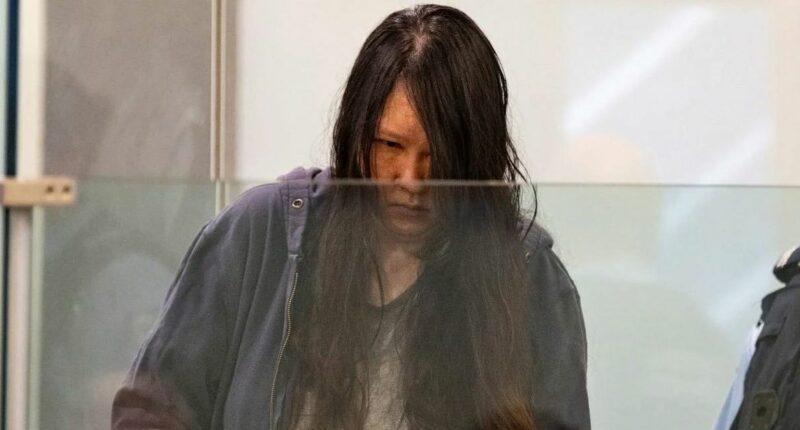


!['Gonna get [her] back in check': Mayor acquitted of beating daughter unconscious has harsh words for her, says he's going to be 'man of the house'](https://internewscast.com/wp-content/uploads/2025/12/Gonna-get-her-back-in-check-Mayor-acquitted-of-beating-380x200.jpg)


